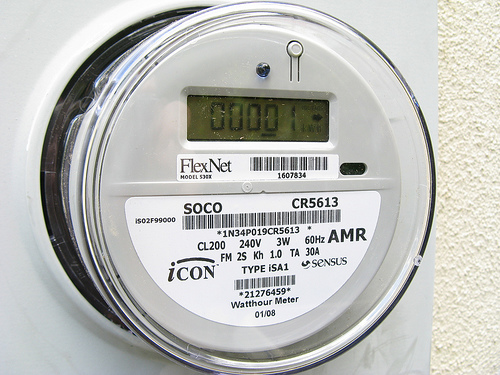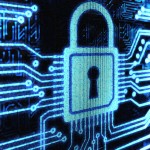Smart meters, those small, digital, and wireless technologies, have generated more opposition in states like Vermont.
Highly esteemed as a key energy conservation and grid reliability tool by the Department of Energy, proponents of the smart meter reach as far as the Obama administration which allocated $3.5 billion of its $787 billion economic stimulus package to grants to help utilities install the new technology.(1) Yet, as of late, utilities who have been being installing the technology in businesses and homes around the country have been under fire from the growing opposition.
So what’s the big fuss? Well, citizens of Vermont have vented concerns over potential health effects, invasions of privacy, and opt out costs.
However, for the sake a clarity we will give a short run down of how smart meters function. Essentially, smart meter technology works by allowing utilities to operate in a more efficient and environmentally friendly manner with the use of a two-way radio communication system that can immediately detect when even a single customer lost power. Smart meters also allow power prices to vary at different times of the day in keeping with demand. The end result is that it produces an incentive for consumers to unplug to prevent phantom usage and run power-hungry appliances at night when demand is low.
Health
 The key concerns regarding health and the smart meter is that there is an insubstantial amount of research to prove that it is safe. Citizens are concerned that the emission of radio-frequency radiation by the smart meters have placed them at an elevated risk for potential long-term health effects like cancer. Some have gone as far as to report chronic headaches. To support their concerns, a new report by the International Agency for Research on Cancer, a branch of the World Health Organization, has been released stating that the radiation from such devices as cell phones, laptops, and smart meters are potentially carcinogenic.(1).
The key concerns regarding health and the smart meter is that there is an insubstantial amount of research to prove that it is safe. Citizens are concerned that the emission of radio-frequency radiation by the smart meters have placed them at an elevated risk for potential long-term health effects like cancer. Some have gone as far as to report chronic headaches. To support their concerns, a new report by the International Agency for Research on Cancer, a branch of the World Health Organization, has been released stating that the radiation from such devices as cell phones, laptops, and smart meters are potentially carcinogenic.(1).
Smart meter supporters, on the other hand, attest that the levels of radio frequency radiation emitted by the devices are much lower than other devices reported by the IARC’s report. Also that government agencies implemented emission margins that are more than larger enough to keep us safe (1). The Federal Communications Commission goes on to label smart meters safe because they are very unlikely to cause bodily tissue heating or electric shock. Still , “Dr. Poki Stewart Namkung, the public health officer for Santa Cruz County in California, issued a report in January calling the Federal Communications Commission standards “irrelevant”‘(1).
Privacy
With the use of a two-way radio communication system being compared to wiretaps, the second concern is over the privacy and security of the data collected by smart meters. Critics say the devices will be able to tell too much about what a utility customer is using and when they are using it. The associated risk being that it will open up a whole world of information that could be sold or hacked for personal information. While most companies do not have these capabilities yet, they admit that the systems will be able to track individual appliances in the near future on a voluntary basis.(1).
In Vermont. community leaders are demanding that the appropriate actions be taken. In particular, they are requesting that a formal risk assessment be performed to ensure private information can and will be protected.
“Allen Gilbert, executive director of the Vermont chapter of the American Civil Liberties Union, said he wants to see assurances that police have to get a search warrant before accessing a utility customer’s usage data.” (1)
Likewise, “The U.S. Department of Energy’s inspector general, Gregory Friedman, said “in a report issued in January that many companies deploying smart meters had not done enough to protect the systems from hackers who might be after customers’ personal information or who might be looking to sabotage utility grids.” He adds that “without a formal risk assessment and associated mitigation strategy, threats and weaknesses may go unidentified” and expose utility grids “to an unacceptable level of risk.”(1)
Cost
The costs incurred by the consumer opting out have generated the most concern. Several states including California, Maine, Nevada, and Oregon charge their customers a fee as high as $75 a month to opt out.(1) Yet, Vermont differs because the costs is spread across all customers rather than by those who opt out. Pacific Gas and Electric Company defend that their actions are necessary so that the utility can cover the cost of sending meter readers out to the homes that have kept traditional meters. To get an idea of how many traditional homes they are referring to, “as of May 8, more than 90 percent of the company’s electricity meters had been upgraded to smart meters, and more than 27,000 customers, or less than 1 percent, had declined an upgrade.”(1)
The counter argument made by many citizens and lead by Senator Robert Hartwell (D) is that consumers should not have to pay to opt out at all since the utilities are the ones that decided to implement the smart meter program without their consent or input. Hence, they should be the ones to incur the costs.(1) Supporting their claims are industry watchers who even attest that the cost reductions said to occur when consumers adjust their usage to low demand times have yet to materialize. They also cite how in cities like Santa Cruz there have been reverse effects. (1)
“As of now its anticipated that Vermont’s governor is expected soon to sign legislation that would allow customers to say no without paying anything extra, at least until more studies are completed on the real costs of not deploying the meters.”(1)
Do you think that customers should pay for an opt out program? Weigh in here with your comments.
Sources









